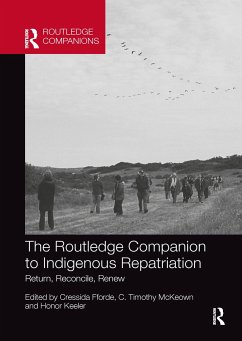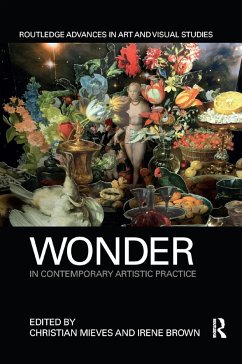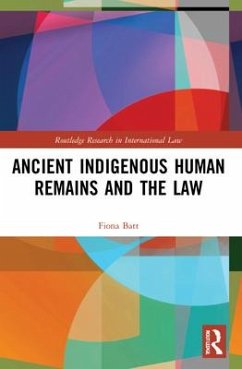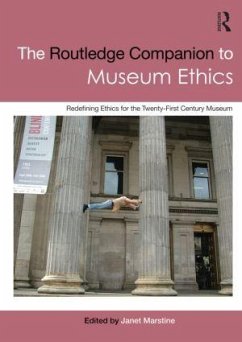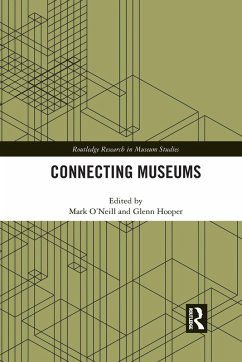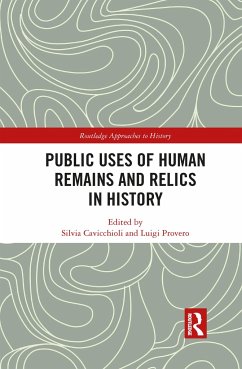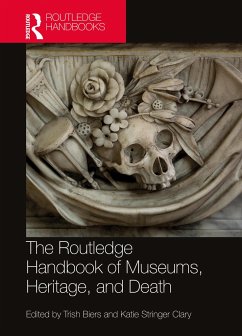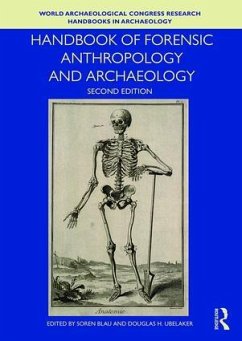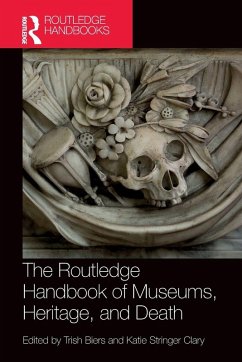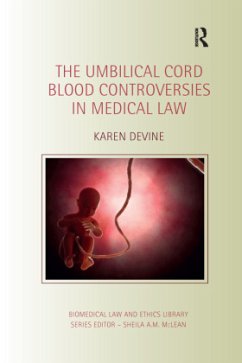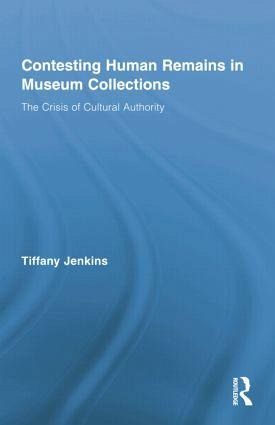
Contesting Human Remains in Museum Collections
The Crisis of Cultural Authority
Versandkostenfrei!
Versandfertig in 6-10 Tagen
60,99 €
inkl. MwSt.
Weitere Ausgaben:

PAYBACK Punkte
30 °P sammeln!
Since the late 1970s human remains in museum collections have been subject to claims and controversies, such as demands for repatriation by indigenous groups who suffered under colonization. These requests have been strongly contested by scientists who research the material and consider it unique evidence.This book charts the influences at play on the contestation over human remains and examines the construction of this problem from a cultural perspective. It shows that claims on dead bodies are not confined to once colonized groups. A group of British Pagans, Honouring the Ancient Dead, forme...
Since the late 1970s human remains in museum collections have been subject to claims and controversies, such as demands for repatriation by indigenous groups who suffered under colonization. These requests have been strongly contested by scientists who research the material and consider it unique evidence.
This book charts the influences at play on the contestation over human remains and examines the construction of this problem from a cultural perspective. It shows that claims on dead bodies are not confined to once colonized groups. A group of British Pagans, Honouring the Ancient Dead, formed to make claims on skeletons from the British Isles, and ancient human remains, bog bodies and Egyptian mummies, which have not been requested by any group, have become the focus of campaigns initiated by members of the profession, at times removed from display in the name of respect.
By drawing on empirical research including extensive interviews with the claims-making groups, ethnographic work, document, media, and policy analysis, Contesting Human Remains in Museum Collections demonstrates that strong internal influences do in fact exist. The only book to examine the construction of contestation over human remains from a sociological perspective, it advances an emerging area of academic research, setting the terms of debate, synthesizing disparate ideas, and making sense of a broader cultural focus on dead bodies in the contemporary period.
This book charts the influences at play on the contestation over human remains and examines the construction of this problem from a cultural perspective. It shows that claims on dead bodies are not confined to once colonized groups. A group of British Pagans, Honouring the Ancient Dead, formed to make claims on skeletons from the British Isles, and ancient human remains, bog bodies and Egyptian mummies, which have not been requested by any group, have become the focus of campaigns initiated by members of the profession, at times removed from display in the name of respect.
By drawing on empirical research including extensive interviews with the claims-making groups, ethnographic work, document, media, and policy analysis, Contesting Human Remains in Museum Collections demonstrates that strong internal influences do in fact exist. The only book to examine the construction of contestation over human remains from a sociological perspective, it advances an emerging area of academic research, setting the terms of debate, synthesizing disparate ideas, and making sense of a broader cultural focus on dead bodies in the contemporary period.





